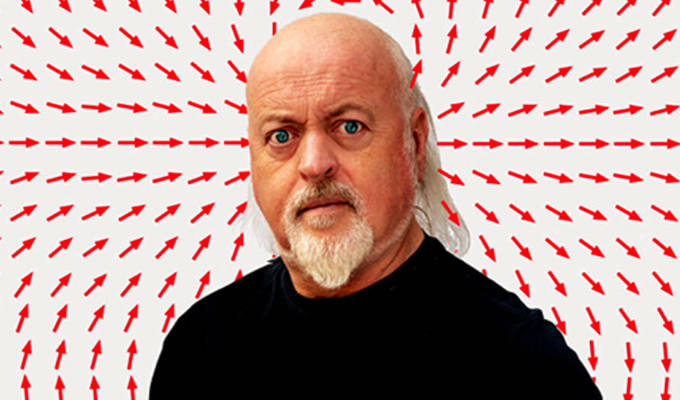
AI has made me a better songwriter
Musical comedian Ashley Frieze on how the bots have helped with creativity.
Back in April, I wrote about my adventures with writing lyrics for AI to put to music and I thought it was a little period of madness that I really ought to get over.
Yet here we are, three albums and more than 100 songs later (including the latest, below). I had no idea at the start of the year that I could possibly become so prolific, and I think the journey has had a marked effect on my craft as a songwriter.
It’s jaw-dropping and amazing fun to have a computer game into which you feed lyrics and ideas for it to sing them back to you. Using it repeatedly has increased my own confidence in creating songs. It’s also made me more likely to improvise songs live on stage, in the belief that I’ll probably find jokes and a punchline as I go.
I firmly believe that generative AI does not have the ability to create compelling art in itself, and that a machine extrapolating from a small text prompt will lead to mediocrity. I make an exception with this form of music making, since I’m feeding it a ton of content and curating and re-editing to get back what I want to see..
In using AI, though, I’ve learned a lot about creativity in itself, and I’d like to share some of the things that seem to come naturally when making music with AI, which may also help with making content of any type without using generative AI to express it.
Make a big old list of ideas on a subject: Keep adding to that list, because some of the best ideas are about 20 or so rows down when you have to dig deeper into your imagination.
Work quickly without self doubt: Try an idea out without too much thought and see what it becomes. See if it gathers momentum or dies on the vine. Don’t agonise over it. Just make something and review it once you’ve got something big enough to listen back to.
Combine a few ideas to get something greater than the sum of its parts: I had this with my Christmas album. I had one idea about ‘It was Christmas Eve and all through the house, nothing was stirring, not even a mouse, because everyone’s dead’ and another about Die Hard: The Musical. I realised that doing the story of Die Hard from the point of view of Hans Gruber’s grieving household was a better idea than the other two.
If it stinks, change it. Be honest with yourself. If it doesn’t spark joy, fix it or ditch it. I’ve probably kept a few clunkers, but I’ve destroyed more clunkers than I kept.
Don’t worry if you don’t know where it’s going. This is a lesson we can learn from AI itself. The chatbots generate their answer a word at a time, looking back over the sum of what’s been said so far to work out what belongs next. Have the confidence to work forwards from a root idea to the available punchlines you’ll discover along the way. Keep going, you can edit later.
Know when to work backwards, Sometimes I’ll write a song chorus first in order to work out what that chorus needs to set it up. Sometimes you’ve got the perfect ending for a thing, and you need to find the journey that gets us there.
Everything is a song. When I’m about three-quarters of the way through making an album, I find myself obsessing over any event that occurs to me to ask how it can be the next song. I once wrote a song about a word document called Untitled. On the Christmas album, my favourite song came about after a mishap with a Tesco home delivery order. I looked at the situation and said: ‘Yes, but what’s the song?’. This translates to the stage too. I’ve asked myself and the audience that question and then improvised the answer.
Embrace what happens. Brian Eno’s Oblique Strategies – a card-based method for sparking creativity – has ‘honour thy error’ in it. When working with AI, sometimes what you get out is not what you expect. But running with it, and making a virtue of that can be what the product needs. The same can be said with things that happen on stage or in the writing room.
Look for moments of wonder: The effort of doing can sometimes be so absorbing that we forget that the product itself needs to be delightful. Look for things that make you go wow and run with that. Be honest with yourself if something seems a bit mundane.
I should also add that there are ways in which language tools in general can help us creatively. Online dictionaries, thesauruses and rhyming dictionaries are excellent aids to the old fashioned process of crafting the right words. I’ve similarly taken to using ChatGPT or Google Gemini as a semantic dictionary. I’ve asked the chatbot to give me concepts related to other concepts.
This sort of word association or research of the culture around a thing is something writers often do, indeed we may have seen those common "Hive mind, what’s a thing you associate with" type of posts on Facebook from fellow writers. The chatbots are helpful for this, without stealing our creativity.
So, however, you’re creative, with whichever tools you use, I hope you’re inspired to make things over and over until you’re positively delighted with some of it.
• Ashley Frieze’s latest AI Album - Oh No! It’s a Monkey Paw Christmas, by The Incredible Jukebox, is available on all streaming services including YouTube, Amazon Music, Spotify and Apple Music.
Published: 8 Dec 2024






